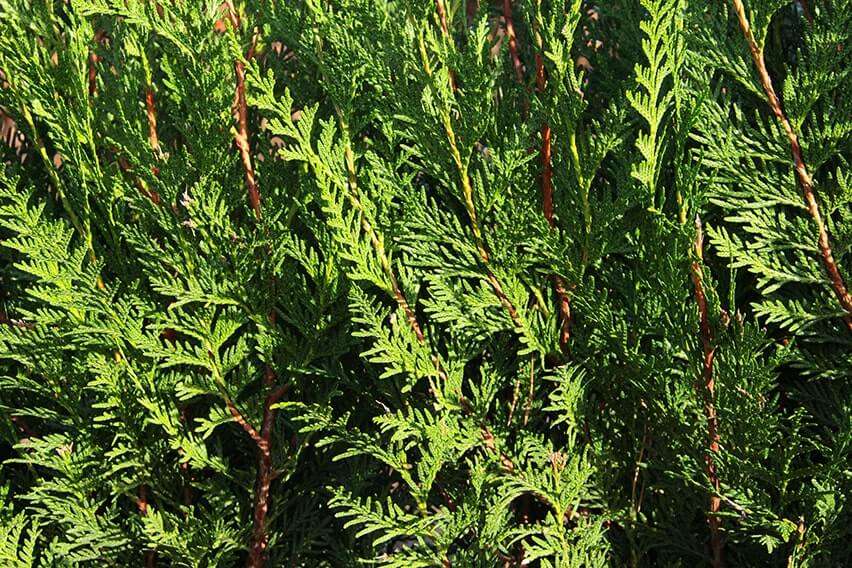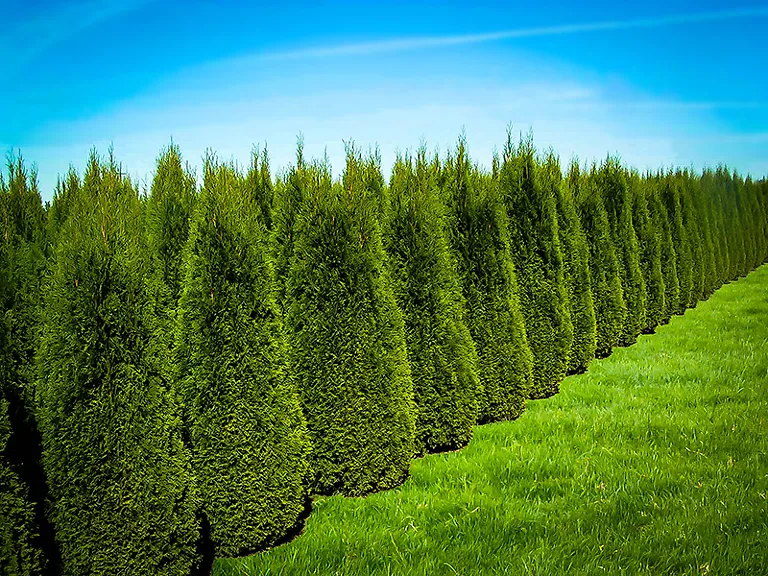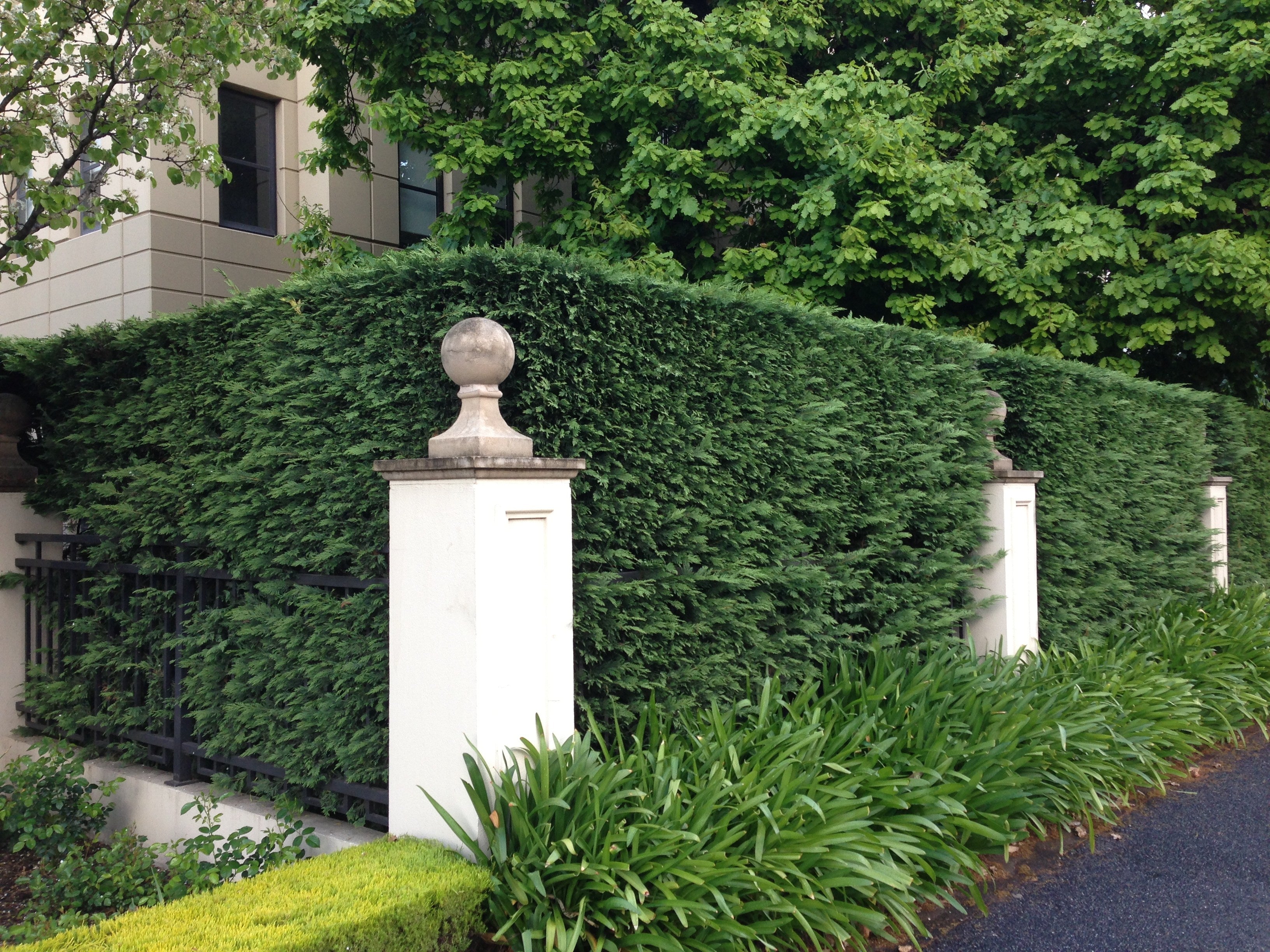Top Privacy Trees for Your PNW Yard
Imagine lounging in your backyard on a mild Seattle afternoon, the sound of rain pattering softly in the distance, without a single neighbor in sight. That’s the magic of well-chosen privacy trees—they not only block unwanted views but also add natural beauty and tranquility to your outdoor space. If you’re blessed with a spacious yard west of the Cascade Mountains, where our wet winters and dry summers define the landscape, selecting the right trees is key to creating that secluded haven. In this guide, we’ll explore the best trees for privacy, focusing on traditional favorites that thrive in our mild, moist climate. We’ll touch on eco-friendly options too, like natives that support local wildlife, while keeping things practical for homeowners like you.
Why bother with privacy trees? Beyond the obvious seclusion, they act as windbreaks, reduce noise, and even improve air quality. In the Pacific Northwest, where overcast days are common, evergreens provide year-round greenery, ensuring your yard stays vibrant even in winter. Plus, with spacious yards, you have room to plant larger specimens that grow tall and wide without overwhelming smaller lots. Let’s dive into our top picks, selected for their growth habits, resilience, and suitability to our region’s clay-heavy soils and frequent rains.
1. Western Red Cedar (Thuja plicata)
This native powerhouse is a staple in PNW landscaping for good reason. Growing up to 70 feet tall with a spread of 15-25 feet, the Western Red Cedar forms a dense, pyramidal screen that’s perfect for blocking views in larger yards. Its scale-like foliage stays lush green year-round, and it tolerates our wet winters exceptionally well—thriving in partial shade to full sun.
What makes it ideal for privacy? The lower branches fill in naturally, creating a solid barrier without much pruning. As a native species, it’s eco-friendly, providing habitat for birds and resisting common pests. Plant them 10-15 feet apart for a hedge effect. Just remember, they prefer well-drained soil to avoid root rot, a common issue in our rainy climate.
For maintenance tips, check out our Pest Control Guide to keep deer and aphids at bay.
2. Douglas Fir (Pseudotsuga menziesii)
Another PNW icon, the Douglas Fir is your go-to for towering privacy in expansive spaces. Reaching heights of 50-80 feet with a 20-30 foot spread, this evergreen grows relatively quickly—about 2 feet per year once established. Its feathery needles and sturdy branches make it a wind-resistant choice, ideal for yards exposed to coastal breezes west of the Cascades.
In spacious yards, stagger them in rows for a natural forest-like screen that blends seamlessly with the surrounding wilderness. Eco-wise, it’s a native that supports biodiversity, attracting songbirds and small mammals. Plant in full sun with acidic soil, and mulch heavily to retain moisture during our dry summers. Avoid overwatering, though—our natural rainfall usually suffices.
If you’re planning a full landscape overhaul, our Design-Build Services can help integrate these giants thoughtfully.
3. Emerald Green Arborvitae (Thuja occidentalis ‘Smaragd’)
For a more manicured look, the Emerald Green Arborvitae shines in PNW yards. This columnar tree tops out at 10-15 feet tall and just 3-4 feet wide, making it perfect for tighter borders in spacious properties without taking over. Its bright green foliage holds up well against snow and rain, providing dense coverage year-round.
Why choose it for privacy? It’s low-maintenance and deer-resistant, growing about 1 foot per year. Plant them 3 feet apart for a quick hedge. In our climate, it appreciates afternoon shade to prevent scorching in rare heat waves. As an added eco-nod, it improves soil health by dropping nutrient-rich needles.
Explore more options in our Plants section for varieties suited to your soil type.
4. Leyland Cypress (Cupressus × leylandii)
If speed is your priority, the Leyland Cypress delivers. This fast-grower can add 3-4 feet annually, reaching 60-70 feet tall with a 15-25 foot spread—ideal for screening large areas quickly. Its feathery, blue-green foliage creates a soft, impenetrable barrier that’s wind-tolerant and adaptable to our mild temperatures.
In spacious PNW yards, use it to define property lines or shield patios. It’s not native, but it pairs well with sustainable practices like rainwater harvesting for irrigation. Watch for bagworms, though; early detection is key. Plant in full sun with good drainage to thrive.
For ongoing care, our Landscape Care Services ensure your trees stay healthy.
5. Excelsa Cedar (Thuja plicata ‘Excelsa’)
A cultivar of the Western Red Cedar, the Excelsa offers similar benefits but with a more upright form, growing 30-40 feet tall and 10-15 feet wide. Its dark green foliage and rapid growth make it excellent for privacy in medium to large yards.
What sets it apart? It’s highly resistant to diseases common in our humid climate, like cedar rust. As a semi-native option, it supports local ecosystems while providing thick screening. Space them 8-10 feet apart and prune lightly for shape.
Incorporate sustainable elements by visiting our Sustainability page for tips on eco-friendly planting.
Planting Tips for Success in the PNW
Ready to get started? Traditional planting methods work best here. Begin by assessing your soil—our region’s clay can hold water, so amend with compost for drainage. Dig holes twice as wide as the root ball, plant at the same depth as the nursery pot, and water deeply but infrequently to encourage strong roots.
- Spacing: For privacy screens, aim for 50-75% of the mature width to allow filling in without crowding.
- Timing: Fall or early spring is ideal, avoiding summer drought stress.
- Mulching: Apply 2-3 inches of organic mulch to retain moisture and suppress weeds.
If hardscapes like retaining walls complement your trees, explore our Hardscape ideas.
Maintenance Essentials
Keeping your privacy trees thriving involves straightforward care. Prune annually in late winter to shape and remove dead branches. Fertilize sparingly with a balanced, slow-release product in spring. In our wet climate, monitor for fungal issues—good air circulation helps.
Eco-friendly maintenance? Use natural pest controls and native underplantings to boost biodiversity. According to Oregon State University Extension, native trees like these can reduce water usage by up to 50% compared to exotics Gardening with Oregon Native Plants West of the Cascades.
Common Challenges and Solutions
Deer browsing? Fencing or repellents from our Pest Control guide. Wind damage? Stake young trees. With spacious yards, you have flexibility to mix species for resilience.
Creating privacy in your spacious yard doesn’t have to be overwhelming. These trees offer timeless appeal with minimal fuss, tailored to our PNW vibe. Ready to transform your space? Contact Classic Landscaping + Nursery today for expert advice or to schedule a consultation through our Design-Build services. Let’s make your yard the private paradise you’ve always wanted!

:strip_icc()/bhg-privacy-trees-102831916-1e94bdb1df444e8f8cac36c678aaf341.jpg)


